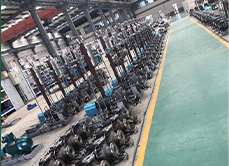Scottish Gaelic
- Afrikaans
- Albanian
- Amharic
- Arabic
- Armenian
- Azerbaijani
- Basque
- Belarusian
- Bengali
- Bosnian
- Bulgarian
- Catalan
- Cebuano
- Corsican
- Croatian
- Czech
- Danish
- Dutch
- English
- Esperanto
- Estonian
- Finnish
- French
- Frisian
- Galician
- Georgian
- German
- Greek
- Gujarati
- Haitian Creole
- hausa
- hawaiian
- Hebrew
- Hindi
- Miao
- Hungarian
- Icelandic
- igbo
- Indonesian
- irish
- Italian
- Japanese
- Javanese
- Kannada
- kazakh
- Khmer
- Rwandese
- Korean
- Kurdish
- Kyrgyz
- Lao
- Latin
- Latvian
- Lithuanian
- Luxembourgish
- Macedonian
- Malgashi
- Malay
- Malayalam
- Maltese
- Maori
- Marathi
- Mongolian
- Myanmar
- Nepali
- Norwegian
- Norwegian
- Occitan
- Pashto
- Persian
- Polish
- Portuguese
- Punjabi
- Romanian
- Russian
- Samoan
- Scottish Gaelic
- Serbian
- Sesotho
- Shona
- Sindhi
- Sinhala
- Slovak
- Slovenian
- Somali
- Spanish
- Sundanese
- Swahili
- Swedish
- Tagalog
- Tajik
- Tamil
- Tatar
- Telugu
- Thai
- Turkish
- Turkmen
- Ukrainian
- Urdu
- Uighur
- Uzbek
- Vietnamese
- Welsh
- Bantu
- Yiddish
- Yoruba
- Zulu
Telephone: +86 13120555503
Email: frank@cypump.com
Samh . 13, 2024 10:19 Back to list
abrasive slurry pump
Understanding Abrasive Slurry Pumps An Essential Component in Heavy Industries
Abrasive slurry pumps are vital machinery used in various industries that handle solids suspended in liquids. These pumps are specifically designed to manage challenging materials, such as slurries that contain a high concentration of solid particles. Industries including mining, construction, and wastewater treatment benefit significantly from the use of abrasive slurry pumps, as they ensure efficient transport and management of abrasive materials.
What is an Abrasive Slurry?
An abrasive slurry is a mixture of liquids and solid particles that can cause significant wear and tear on conventional pumps. This mixture can include anything from sand and minerals to chemical slurries found in battery and metal recovery processes. The challenge presented by these materials lies in their erosive nature; the solid particles can degrade standard pumping components quickly, leading to increased maintenance costs and downtime. Therefore, the design of abrasive slurry pumps focuses on durability and performance under harsh conditions.
Design Features of Abrasive Slurry Pumps
The design features of abrasive slurry pumps distinguish them from regular centrifugal pumps
. Key attributes include1. Construction Materials Abrasive slurry pumps are often made from robust materials such as high-chrome iron, rubber linings, or specialized alloys. These materials resist erosion and corrosion, extending the lifespan of the pump and ensuring reliability over time.
2. Impeller Design The impellers used in slurry pumps are specifically crafted to handle abrasive materials. They generally feature a wider passage and a more robust structure to minimize the velocity impact on solids and reduce wear.
3. Casing and Wear Plates The casing of slurry pumps is designed to withstand high pressure and is often reinforced. Wear plates are sometimes replaceable, allowing for easier maintenance and reduced operational costs when erosion occurs.
4. Suction Efficiency Proper suction design is crucial in slurry pumps to prevent cavitation, which can damage pump components. Efficient suction minimizes the chances of air entrapment, ensuring a smooth flow of the slurry.
5. Sealing Mechanisms Abrasive materials often lead to leakage issues. Therefore, these pumps are equipped with effective sealing mechanisms that prevent slurry from escaping, thereby reducing environmental impacts and operational wastage.
abrasive slurry pump

Applications of Abrasive Slurry Pumps
The versatility of abrasive slurry pumps makes them suitable for a wide range of applications
- Mining In mining operations, these pumps transport minerals from processing plants through pipelines. They can handle different types of slurries, including those involved in coal, gold, and copper extraction.
- Construction In construction, they are used for the disposal of concrete waste and the transfer of sand, gravel, and other mixtures essential for various projects.
- Wastewater Treatment In wastewater treatment plants, abrasive slurry pumps are employed to manage bio-solids and sludge that contain solid particles from treatment processes.
- Chemical Processing These pumps can also handle high-solid-content slurries in chemical processing, including the transportation of hazardous materials.
Challenges and Considerations
Despite their robust design and versatility, operating abrasive slurry pumps comes with challenges. Regular maintenance is crucial to minimize wear and tear, and operators must be trained to handle the pumps correctly to prevent damage. Understanding the specific properties of the slurry being pumped is essential; factors such as particle size, density, and viscosity can significantly affect pump performance.
Additionally, selecting the right type and size of the pump based on the specific application is paramount. Oversizing or undersizing can lead to inefficiencies and increased operational costs. Therefore, thorough analysis and expert consultation are advisable when implementing an abrasive slurry pumping solution.
Conclusion
Abrasive slurry pumps are indispensable in industries that require the transportation of solids in liquid form. Their robust construction, specialized design features, and wide range of applications make them essential tools for efficiency and productivity in heavy industries. As technology advances, the continuous improvement of these pumps will likely lead to even greater durability and efficiency, enabling industries to manage abrasive slurries more effectively in the future.
-
Reliable Non-Clog Sewage Pumps with GPT-4-Turbo Tech
NewsAug.04,2025
-
High-Performance Air Pumps for Sand & Gravel | Efficient Transport
NewsAug.03,2025
-
ISG Series Vertical Pipeline Pump - Chi Yuan Pumps Co., LTD.|Energy Efficiency, Corrosion Resistance
NewsAug.03,2025
-
ISG Series Pipeline Pump - Chi Yuan Pumps | Energy Efficiency&Compact Design
NewsAug.03,2025
-
ISG Series Vertical Pipeline Pump - Chi Yuan Pumps Co., LTD.|High Efficiency, Low Noise, Durable
NewsAug.02,2025
-
ISG Series Vertical Pipeline Pump - Chi Yuan Pumps | High Efficiency, Low Noise
NewsAug.02,2025










